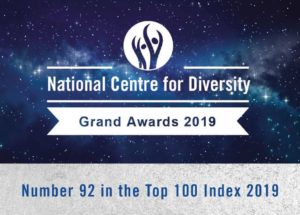On Time to Talk Day, Aimee Wilson, who uses Richmond Fellowship’s services  in
in  Northumberland shares her own experiences of talking about mental health and reiterates why it’s so important.
Northumberland shares her own experiences of talking about mental health and reiterates why it’s so important.
“Talking about mental health is becoming less and less taboo and it’s partly thanks to days like Time to Talk Day! Ten years ago, when I began experiencing auditory hallucinations, mental health was a subject greeted with hushed voices and spiteful gossip. From my personal experience, being diagnosed with a mental health disorder in 2009 came with a million negative connotations and assumptions that left the person feeling isolated and hopeless; believing that because no one else was talking about mental health, they were alone in their experiences.
I spent almost two weeks hearing voices before I finally told a professional and when I did; it was a result of an act of desperation and panic following my first suicide attempt and admission to a psychiatric hospital under the Mental Health Act.
No one could comprehend why I felt suicidal, so it was with great struggle that I fought my doubts and fears and confided in a nurse one night in the ward communal sitting room. This was a relief, but I was still so afraid of judgement and being misunderstood that even after speaking out I struggled to continue the momentum into the following day when the psychiatrist came rushing into my hospital room talking about psychosis and medications. However, once the medication started to take effect, I was able to see how talking about my mental health enabled the staff to be better placed to help and support me.
This thought was encouraging; it filled me with a sense of hope that if I opened up more, then maybe I could get better. It was this reason that motivated me to continue to be honest about my mental health; I told professionals when I’d self-harmed, I spoke about my trauma and my hallucinations, and I talked about any overwhelming emotions that influenced my behaviours.
In fact it was this openness and honesty that inspired me to begin my blog: ‘I’m NOT Disordered’ four years after I was first hospitalised. Over the past six years, my blog has been praised and commended for its honesty, having instilled hope and confidence in its readers. The feedback from my readers has been that by sharing my own experiences of hallucinations and explaining how overwhelming my emotions were, others have gained a better understanding of how they can support those they love and care for, who are having similar experiences.
Similarly, speaking out about my trauma and the impact it has had on me via my blog, has inspired my readers who’ve also experienced trauma to seek help and support. For example, one of the greatest messages I’ve received was from a reader who had experienced a trauma over 30 years ago. After reading my blog post about finding the strength to report my trauma, this person made the decision to report their own trauma. The realisation that my words and experiences had had such a significant impact on someone’s life was overwhelming, but it only spurred me on to write more. I continued to write about my self-harm and suicide attempts aiming to reassure others that they weren’t going through similar experiences alone.
Ultimately, it is these things that make mental health such a worthwhile and potentially life-saving topic of conversation. One that should be on everyone’s lips.”
 Richmond Fellowship has once again been placed in the top 100 organisations for promoting diversity, equality and inclusion by the National Centre for Diversity (NCFD).
Richmond Fellowship has once again been placed in the top 100 organisations for promoting diversity, equality and inclusion by the National Centre for Diversity (NCFD).















